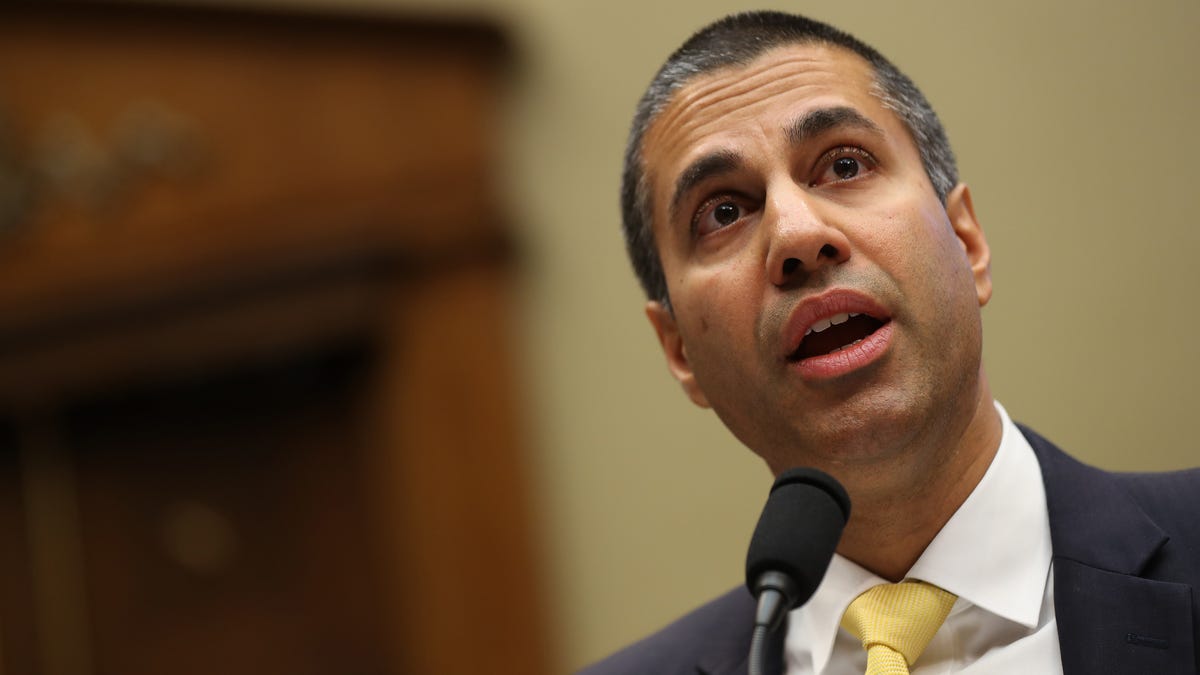FCC Looks to Require Providers Adopt Anti-Robocall Tech—Finally - 2 minutes read
 FCC Chairman Ajit Pai testifies before the House Energy and Commerce Committee’s Communications and Technology Subcommittee on Capitol Hill last December. Photo : Chip Somodevilla ( Getty )
FCC Chairman Ajit Pai testifies before the House Energy and Commerce Committee’s Communications and Technology Subcommittee on Capitol Hill last December. Photo : Chip Somodevilla ( Getty )It seems the Federal Communications Commission is sick of asking nicely for telephone companies to implement anti-robocalling technology. In a Friday press release, the agency announced it plans to mandate service providers adopt so-called SHAKEN (Signature-based Handling of Asserted information using toKENs) and STIR (Secure Telephone Identity Revisited) technology, an authentication method meant to curb robocallers from spoofing caller ID information.
Originally, FCC Chairman Ajit Pai said carriers would have until the end of 2019 to implement SHAKEN/STIR, a nonbinding deadline that, as you’ve probably noticed, already came and went. While more than a dozen of the nation’s largest service providers, including AT&T, Verizon, and Comcast, announced plans to begin rolling out the technology last year, these announcements were noticeably light on details regarding any sort of concrete timeframe.
Advertisement
The delay finally prompted Congress to step in and force the FCC’s hand. In December, President Donald Trump signed the Telephone Robocall Abuse Criminal Enforcement and Deterrence (TRACED) Act into law, instituting a slew of legal deterrents for robocallers—including fines as high as $10,000 per illegal call—and ordering the FCC to establish a stricter timeline for implementing SHAKEN/STIR nationwide.
“All of us are fed up with robocalls—including me,” said Pai in Friday’s press release. “[I]t’s clear that FCC action is needed to spur across-the-board deployment of this important technology. There is no silver bullet when it comes to eradicating robocalls, but this is a critical shot at the target.”
At the end of the month, the FCC will vote on establishing a new mandatory deadline of June 30, 2021 for telephone companies to adopt SHAKEN/STIR, with one-year extensions available for eligible smaller providers. And while another year of robocall hell may seem like an eternity, that date beats the nebulous “soon” some service providers have been spouting for more than a year now.
Advertisement
Meanwhile, robocallers have only been growing more aggressive in constantly blowing up our phones. Americans received 54.6 billion robocalls in 2019, according to the spam call monitoring app Hiya, more than double that of 2018. The problem’s become so insidious, that, on average, Americans field at least one spam call roughly every other day, and the FCC estimates that these robocall schemes cost Americans roughly $10 billion annually.
Source: Gizmodo.com
Powered by NewsAPI.org